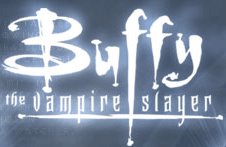What Children Should Read
There's a story in today's The Herald which reports that J K Rowling, Philip Pullman, Ben Okri and Andrew Motion, amongst others, have each compiled a list of 10 books every child should read for the Royal Society of Literature's magazine. The Guardian also reports this story and gives Rowling's, Motion's and Pullman's lists (see below); the latter includes Finn Family Moomintroll by Tove Jansson, Romeo and Juliet by Shakespeare, Emil and the Detectives by Erich Kästner and Norman Lindsay's The Magic Pudding. Motion chose Homer's Odyssey, and Coleridge & Wordsworth's Lyrical Ballads. Motion's list is by far the most advanced, and would be appropriate for teens. The Guardian reports that although it wasn't on his list Pullman also recommends the Just So Stories by Rudyard Kipling
"for the wonderful rhythms and rhymes and the muscular strength of the language. You don't understand everything as a child but you love the sound of it. Children respond very immediately to the musical rhythmic effects of language."
The recommendations were sought by the Royal Society of Literature's Anthony Gardner following a discussion between the Qualifications and Curriculum Authority and the RSL about the teaching of English in schools.
ROWLING'S TOP 10:
Wuthering Heights - Emily Bronte
Charlie and the Chocolate Factory - Roald Dahl
Robinson Crusoe - Daniel Defoe
David Copperfield - Charles Dickens
Catch-22 - Joseph Heller
To Kill a Mockingbird - Harper Lee
Animal Farm - George Orwell
The Tale of Two Bad Mice - Beatrix Potter
The Catcher in the Rye - J D Salinger
Hamlet - William Shakespeare
PULLMAN'S TOP 10:
Finn Family Moomintroll - Tove Jansson
Emil and the Detectives - Erich Kästner
The Magic Pudding - Norman Lindsay
The Rime of the Ancient Mariner - Samuel Taylor Coleridge
Where the Wild Things Are - Maurice Sendak
The Ballad of Sir Patrick Spens (or other good anonymous ballads)
First Book of Samuel, Chapter 17 (the story of David and Goliath)
Romeo and Juliet - William Shakespeare
A good collection of myths and legends
A good collection of fairytales
MOTION'S TOP 10:
The Odyssey - Homer
Don Quixote - Miguel de Cervantes
Hamlet - William Shakespeare
Paradise Lost - John Milton
Lyrical Ballads - Samuel Taylor Coleridge and William Wordsworth
Jane Eyre - Charlotte Brontë
Great Expectations - Charles Dickens
Portrait of a Lady - Henry James
Ulysses - James Joyce
The Waste Land - T S Eliot
I confess I feel better than I thought I might, seeing Motion's list. I've still not managed Paradise Lost, I've not read Don Quixote yet (but it's on my "one day" list), I've read other books by both Joyce and James, and everything else I have read... So what do readers think; which 10 books would you encourage every child to read (or indeed anyone at all) ?


